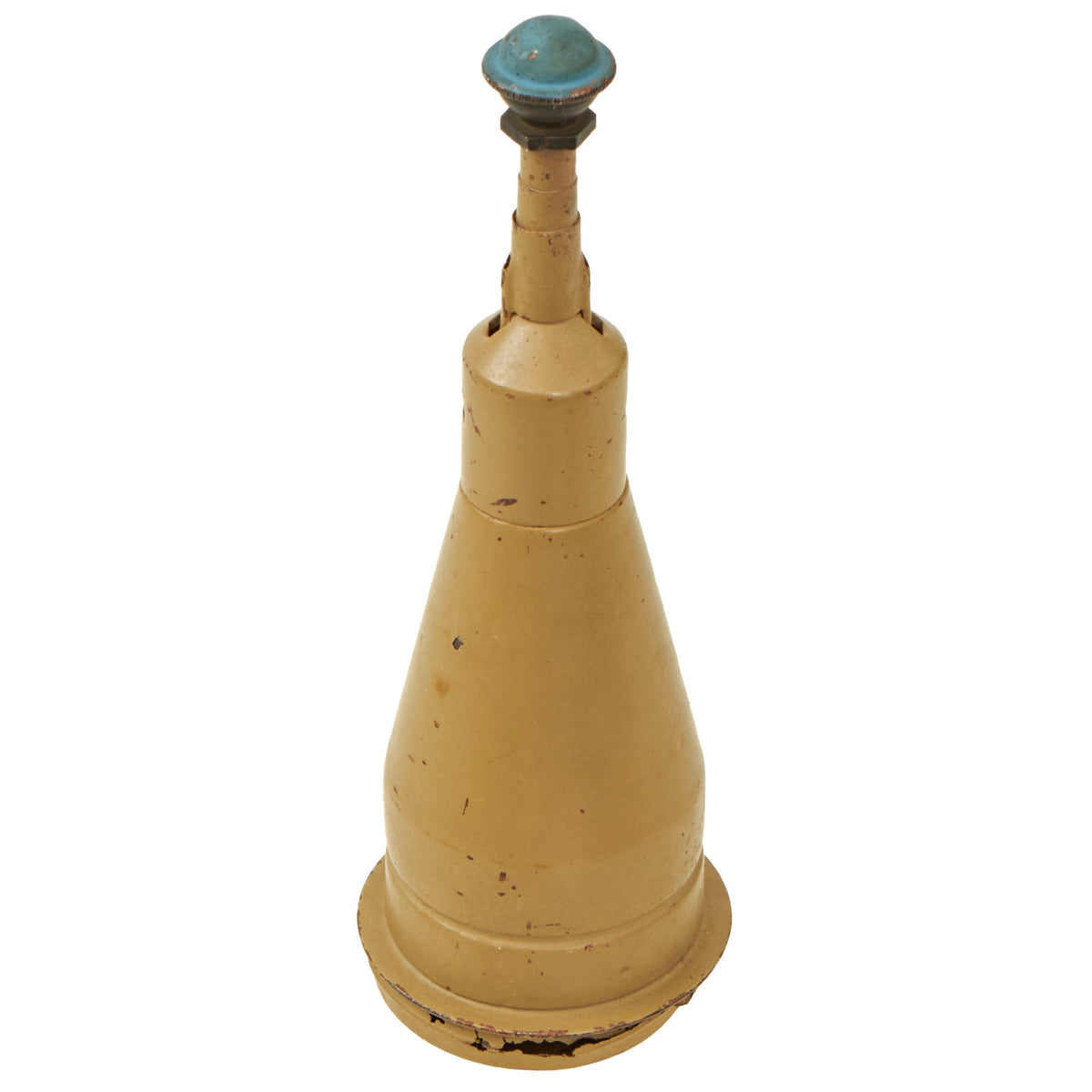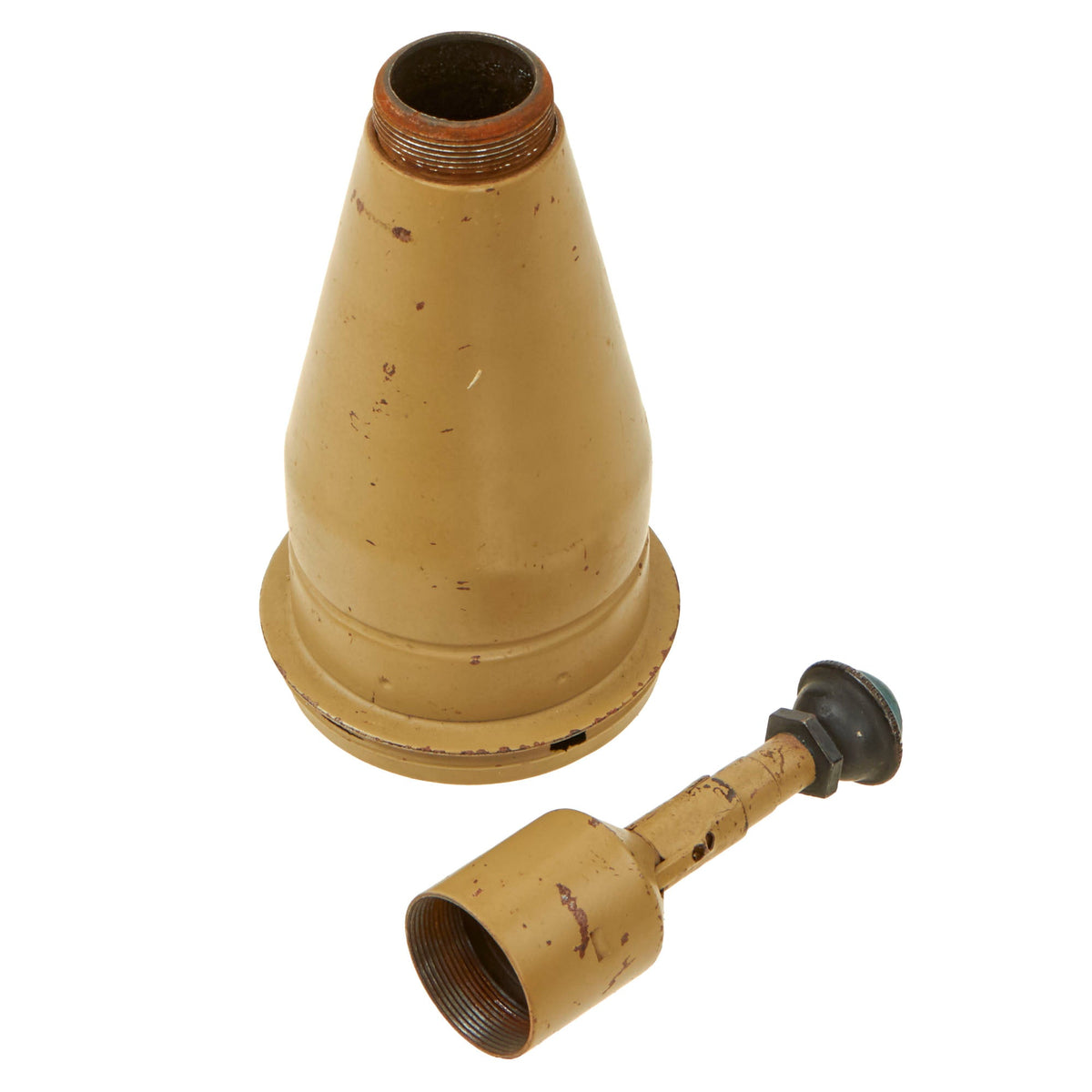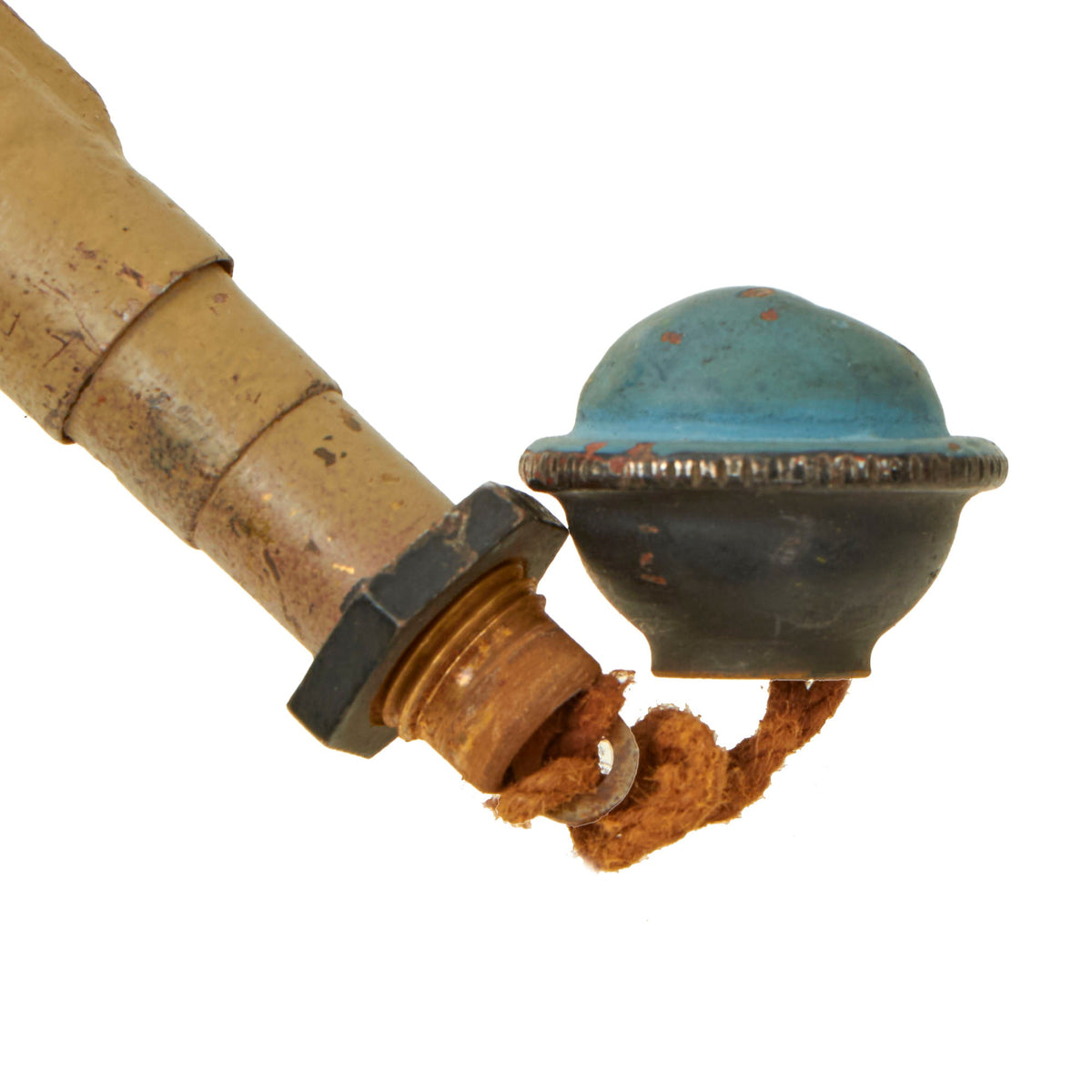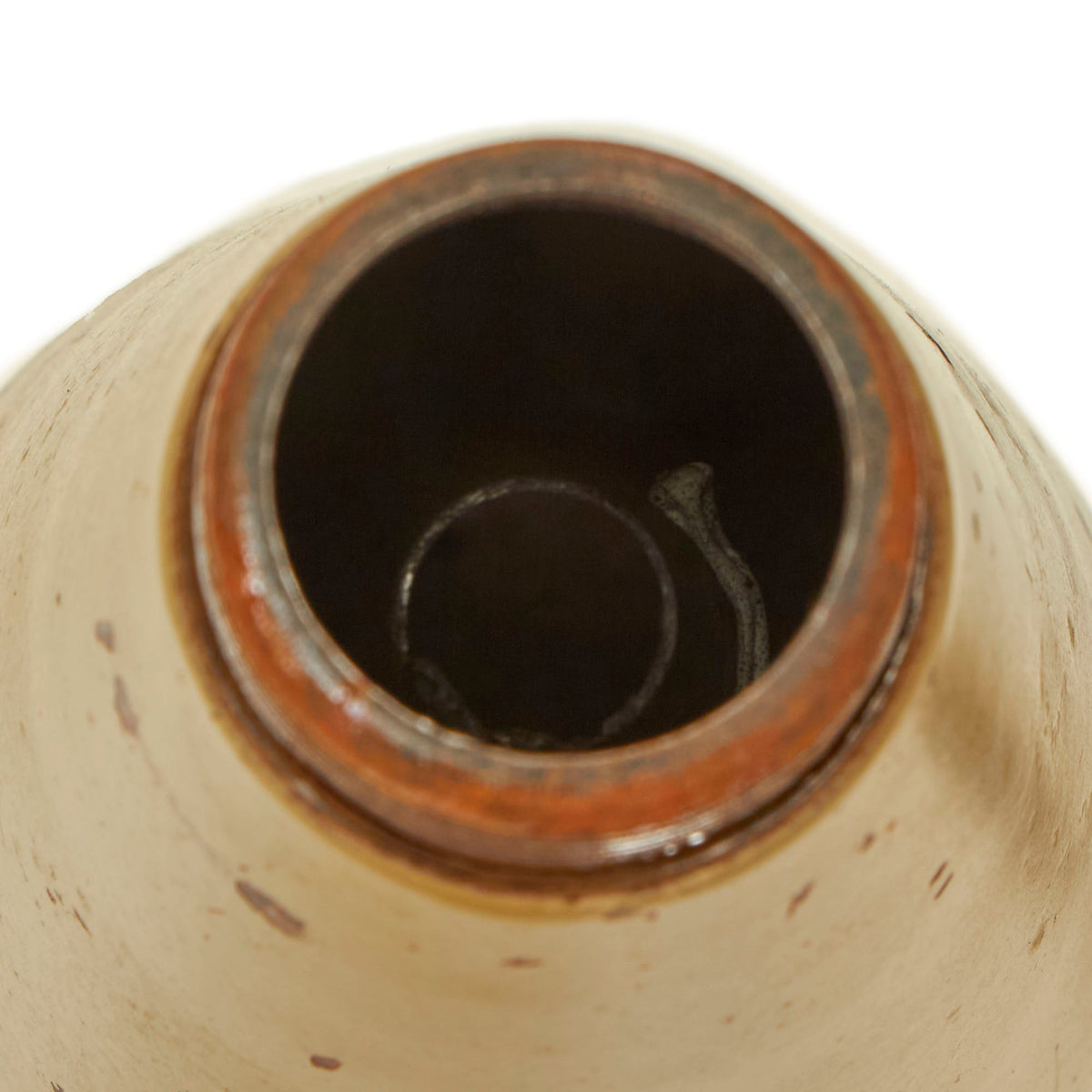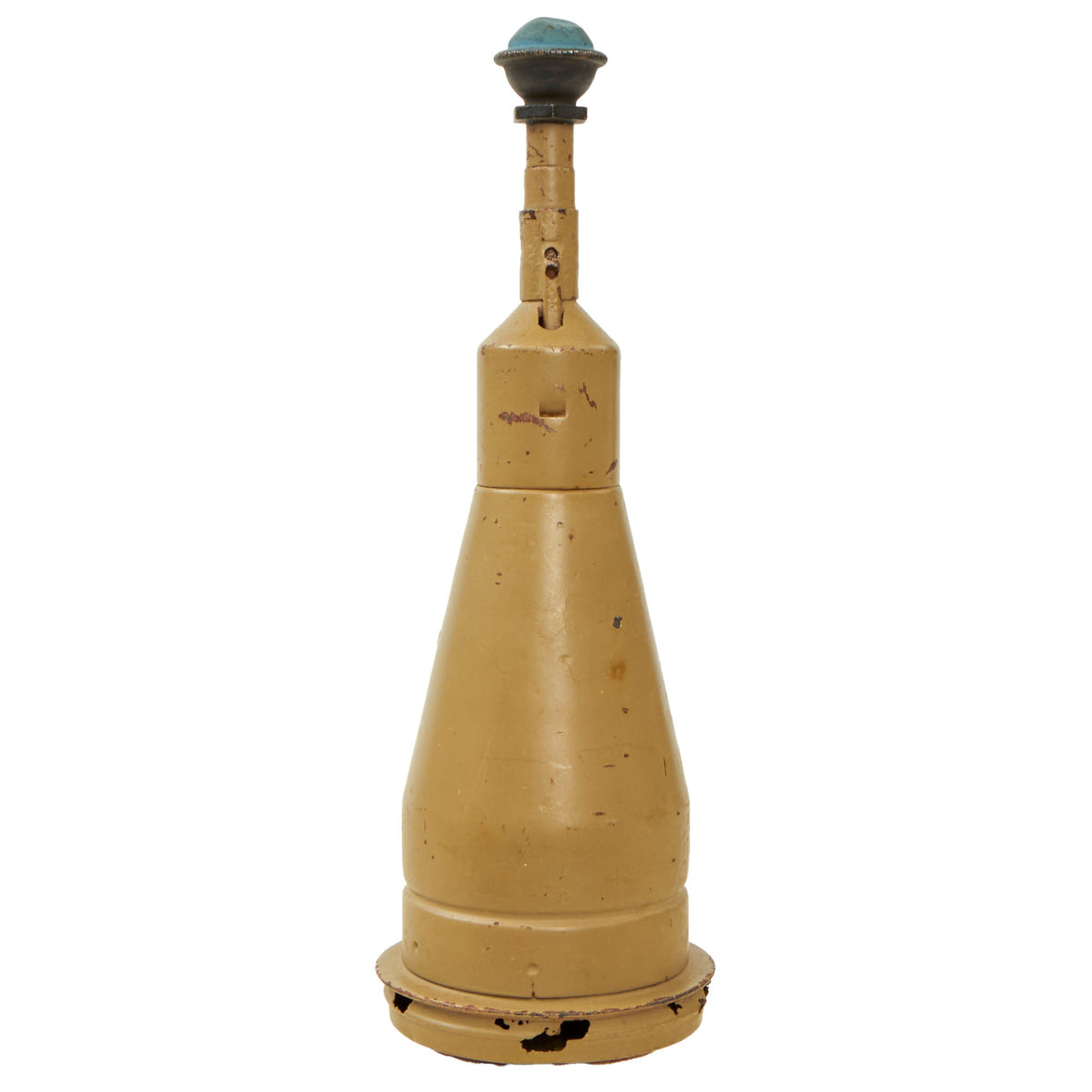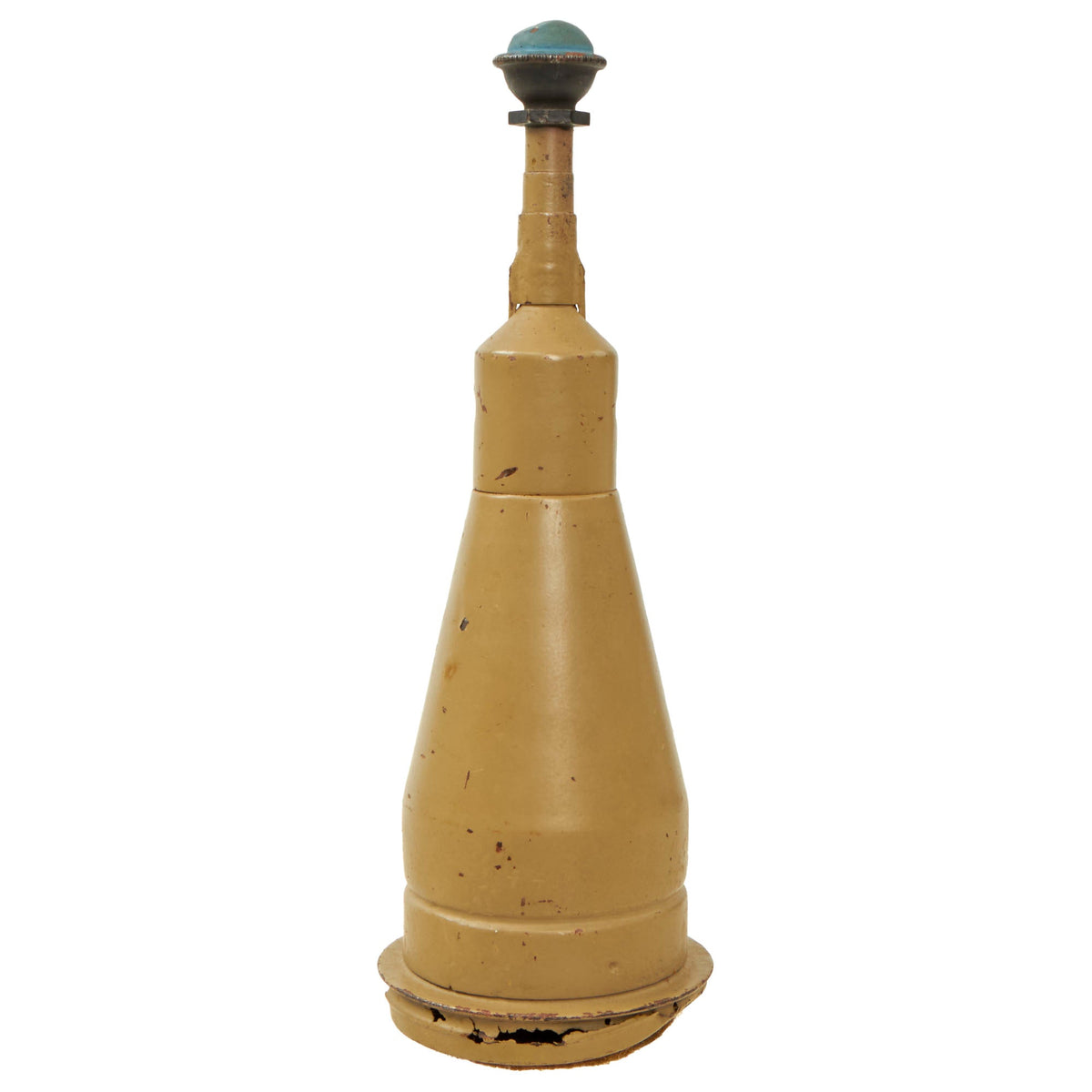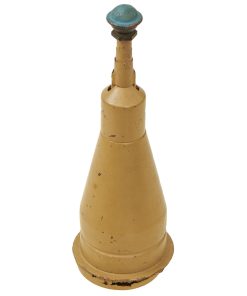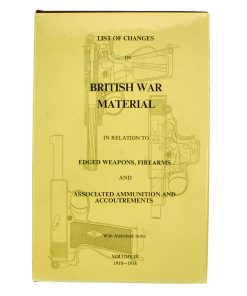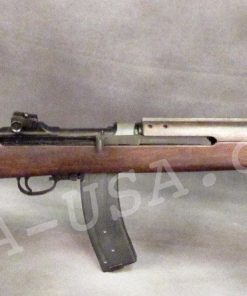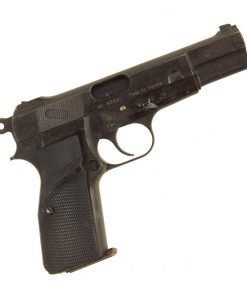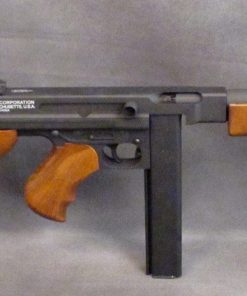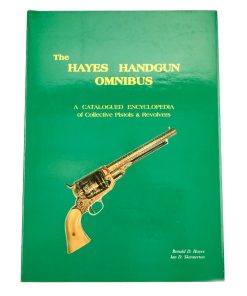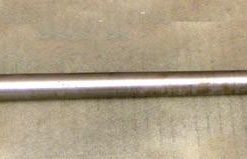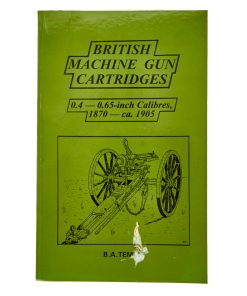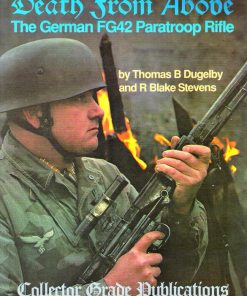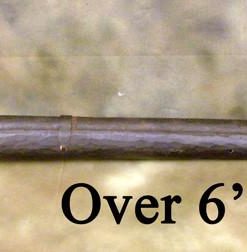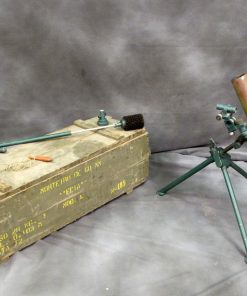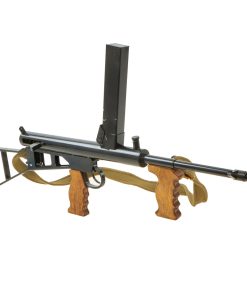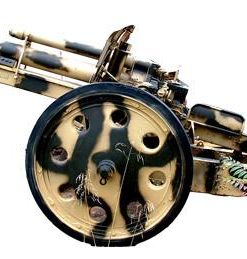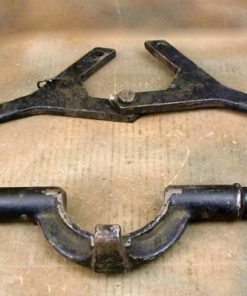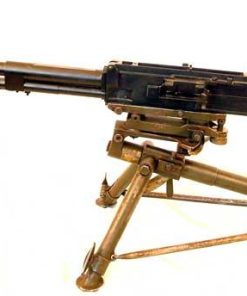Original German WWII Experimental HHL Hafthohlladung “Sticky” Anti Tank Grenade by Vossloh-Werke – dated 1943 Original Items
$ 1.295,00 $ 323,75
Original Item: Only One Available. The Hafthohlladung (Adhesive hollow charge) were a series of anti-tank grenades, sometimes considered an anti-tank mine, that was used by Germany during WWII. Sometimes called the Panzerknacker (Tank-Buster), all of these featured a cone shape, as they utilized the same type of shape charge design seen in the Panzerfaust series of anti-tank weapons. The basic idea was for a soldier to run up to a tank, stick the grenade on, arm it, and then run away.
Unloaded or dummy grenades, artillery shell casings, and similar devices, which are cut or drilled in an BATF-approved manner so that they cannot be used as ammunition components for destructive devices, are not considered NFA weapons. This example is in total compliance and is NOT AVAILABLE FOR EXPORT.
Most of the examples we have seen are larger, and were attached to the tank using strong magnets on the face of the grenade. This example however measures 8 3/8″ long with a base 2 3/4″ in diameter, which is covered with a felt pad. This originally was saturated with a strong adhesive, which would hold the grenade onto the tank until it detonated.
The side of the shape charge cone of the grenade is stamped flf 43, indicating 1943 manufactuer by Vossloh-Werke GmbH in Westfalen, an explosives maker usually associated with “sticky bombs.” As such they were the perfect choice for making these experimental “sticky” anti-tank grenades, which unfortunately did not prove nearly as successful as their magnetic counterparts.
Condition is very good, with the tropical tan paint retained very well on the exterior. The grenade fuse assembly still can be removed from the body, and the interior shape charge cone and still be seen. The top of the fuse can also be unscrewed as well.
A very nice example of a rare anti-tank grenade, the first we have ever had! Ready to research and display!
Fast Shipping with Professional Packaging
Thanks to our longstanding association with UPS FedEx DHL, and other major international carriers, we are able to provide a range of shipping options. Our warehouse staff is expertly trained and will wrap your products according to our exact and precise specifications. Prior to shipping, your goods will be thoroughly examined and securely secured. We ship to thousands clients each day across multiple countries. This shows how we're dedicated to be the largest retailer on the internet. Warehouses and distribution centres can be located throughout Europe as well as the USA.
Note: Orders with more than one item will be assigned a processing date depending on the item.
Before shipping before shipping, we'll conduct a thorough inspection of the items you have ordered. Today, the majority of orders will be delivered within 48 hours. The delivery time will be between 3-7 days.
Returns
The stock is dynamic and we cannot completely manage it because multiple stakeholders are involved, including our factory and warehouse. So the actual stock may alter at any time. It's possible that you may not receive your order once the order has been made.
Our policy is valid for a period of 30 days. If you don't receive the product within 30 days, we are not able to issue a refund or an exchange.
You can only return an item if it is unused and in the same state as the day you received it. You must have the item in its original packaging.
Related products
Uncategorized
Uncategorized
Uncategorized
Angolan Rebel 1970s era 60mm Inert Display Mortar from Angolan Civil War Original Items
Uncategorized
Uncategorized
Uncategorized
Australian WWII Owen MK1 Machine Carbine SMG Custom Fabricated Replica with Sling Original Items
Uncategorized
Band of Brothers ORIGINAL GERMAN WWII Le. F.H. 18 10.5cm ARTILLERY PIECE Original Items
Uncategorized
Uncategorized
Uncategorized
Uncategorized
